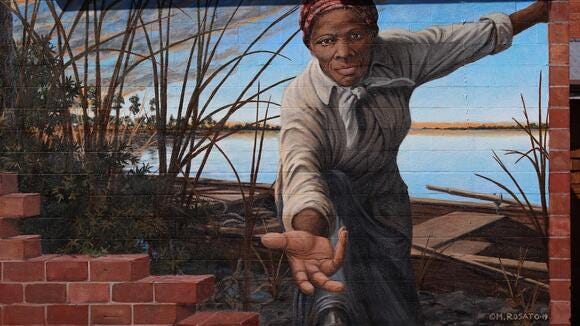'No Bailouts for Reparations Act'-neither party wants to pay Blacks for slavery
The bill would most likely thwart efforts by local and state governments that want to achieve reparations for Black Americans.

U.S Politics
The No Bailouts for Reparations Act introduced by Texas Republican Rep. Brian Babin would prohibit the federal government from providing financial assistance to states, local counties, and municipalities that approve reparations laws.
Babin told Fox News that reparations are a "radical, race-based" policy that would unfairly burden taxpayers.

The bill defines reparations as "any payment, benefit, or other form of compensation made to individuals or groups on the basis of their race or ethnicity, for past acts of discrimination or injustice."
The bill would prohibit the United States government from providing any financial assistance to any state or local government that enacts any law providing reparations for slavery. This includes loans, grants, tax breaks, and other forms of assistance.
The bill's supporters argue that it is necessary to prevent the United States government from being used to bail out state and local governments that enact costly reparations programs.
The bill is a response to the growing movement for reparations for Black Americans. In recent years, there have been a number of proposals for reparations, including a bill introduced by Rep. Cori Bush (D-MO) that would call for $14 trillion in compensation.
"The United States has a moral and legal obligation to provide reparations for the enslavement of Africans and its lasting harm on the lives of millions of Black people," -Cori Bush
Proponents of reparations argue that the descendants of slaves are owed compensation for the centuries of economic, social, and political disenfranchisement that they have suffered as a result of slavery.
They point to the fact that slavery had a devastating impact on the African American community, and that the effects of slavery are still felt today. They believe that reparations would help to close the racial wealth gap and to improve the lives of African Americans.
The politics of reparations
The issue of reparations has become increasingly politicized in recent years. Democrats are more likely to voice support for reparations, but there is still no consensus within either party. A version of H.R 40 , 'Commission to Study and Develop Reparation Proposals for African Americans Act,' has been introduced at every congressional session since 1989.
Some Democrats like Sheila Jackson Lee, believe that reparations are the only way to truly address the legacy of slavery. They argue that reparations would be a way to acknowledge the wrongs of the past and to begin to repair the damage that has been done.
The Republican Party as a whole has been largely opposed to reparations. They argue that reparations would be unfair to taxpayers who had no role in the institution of slavery.
Republicans worry that reparations would further divide the country along racial lines. They argue that it would be better to focus on policies that would help all Americans, regardless of race. Republicans say reparations would also be too expensive, costing trillions of dollars.
Public opinion
Public opinion on reparations is also divided. According to an AP-NORC poll 30% of Americans support reparations, while 68% oppose them.
That same poll showed that there is a significant racial divide on the issue, with 73% of black Americans supporting reparations and only 16% of white Americans supporting them.
Black Political Opinion: Neither party at the federal level wants to pay Blacks for slavery
Some people believe that the Democratic Party is pandering to Black voters by supporting reparations. They argue that the party is simply trying to win votes by promising something that it knows is unlikely to ever be implemented.
Despite having control in the House and Senate in the 117th Congress, Democrats did not pass H.R 40.
It is unlikely that federal reparations for slavery will ever be passed. The political opposition, the cost, the lack of consensus, and the legal challenges any federal legislation would face, make it a very difficult proposition.
However, several states and cities are currently considering reparations, including California. Evanston Illinois is the first to pay reparations to its Black citizens.
If Babin's bill were to become law, it would most likely thwart efforts by local and state governments that want to achieve reparations for Black Americans.
Black Political Opinion is a multi-part opinion-editorial series that looks at various political topics, news, and views, from the perspective of a Black female, conservative leaning Independent, who voted for Biden in 2020. Follow me on Twitter @MsLashaunTurner and @MsBlackPolitics.
Read More Black Political Opinion:
Black Political Opinion: Mesha Mainor leaving the Democrat Party sends a message to Black America
Black Political Opinion: What have Democrats done for Blacks? Ice Cube says "nothing has changed"
Black Political Opinion: NAACP travel warning for Florida, but not Chicago?




Back Pay
The Reparation talk has been going on for a long time
and is not getting anywhere.
We know that the people worked without pay. Right?
Can we put a team of actuaries together to work out
the back pay that is due and take care of that now?
The governments and the descendants of the people
who benefited should be the ones who pay.
05/09/23
I support this bill! Why should tax payers pay for something they aren’t responsible for? Slavery ended, move on! No hand outs! Go to work!